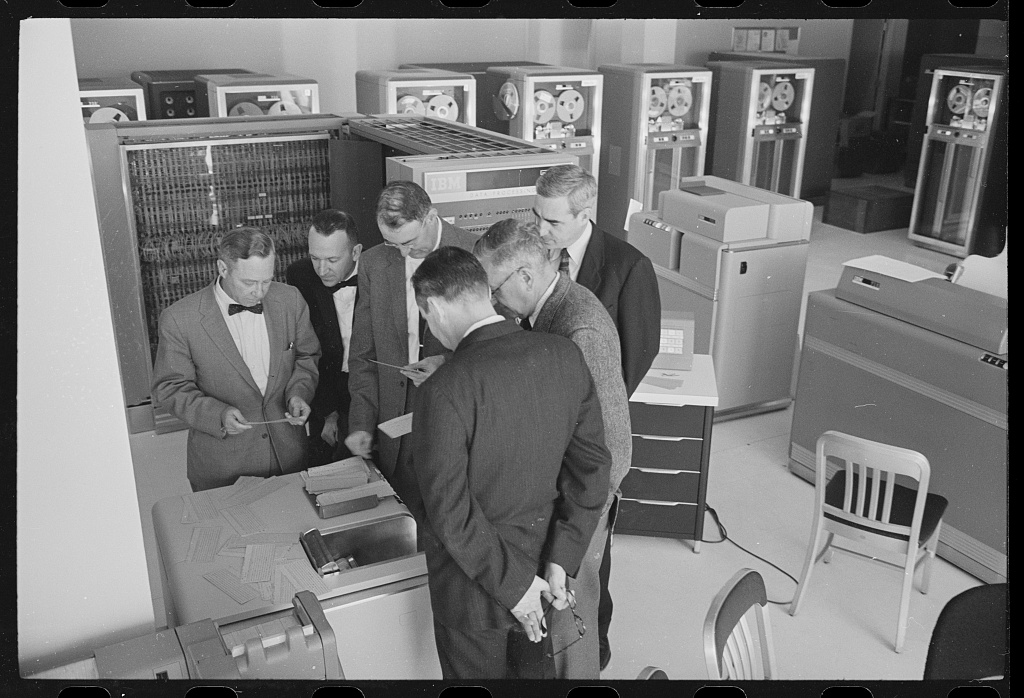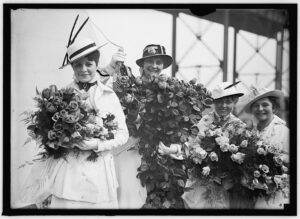Southern Legitimacy Statement: When I let my dogs out in the morning, I’m rewarded with a picturesque view of rolling hills, pastures dotted with horses and a tiny mule. The goats bleat at me incessantly and I don’t mind. On my piece of heaven down here in Virginia, I love the acrid smell of manure and urine mixed with the sweetness of daphne odora and Korean spice planted near my tomatoes, which are ripe for canning. Is there any other way to live? I don’t want to know.
I Guess We’ll Never Know
One thing I know for certain is that he liked things his way, predictably simple, on schedule, and uncomplicated by fussy interruptions, which included even a phone call. My father-in-law, a distinctly southern character, was quite socially engaging in person, but would not talk on the phone for more than ten seconds before handing it off to his wife. He would call me or my husband to ask a question about his cable television bill or something similar, and even though he had initiated the call, within seconds of one of us answering, we would just share an amused look as we heard the familiar grumble of his anticipated response, “Hold on, I’ll let you talk to your mama.”
And talking to my mother-in-law is getting harder every day. It started with a fall that led to hip surgery which ended up changing all of our lives forever. I guess we’ll never know how things might be today if the hospital had not ignored her DNR order the day she coded from the blood clot that had traveled to her lungs and caused the massive heart attack. Instead, they battled for 45 minutes to resuscitate her, cracking some of her 79 year old ribs in the process while my father-in-law stood by helplessly watching his lifeless wife’s body endure the seemingly endless trauma. When they finally had a pulse again, she was placed on life support and so began the long journey through rehab facilities, physical and occupational therapy, home health care, selling their home, moving from one assisted living facility to another, and now hospice.
Like a true southern gentleman, he never left her side. Even during COVID when he wasn’t allowed into the rehab facility, we snapped a photo of him standing on his tiptoes outside of her window in the cold, peering in through the glass just to catch a glimpse of her. But they were that kind of couple, who spent all of their time together. They dressed up like salt and pepper shakers on Halloween. I can’t remember now if he was the salt or the pepper. Before the tragic fall, they had spent all their free time shag dancing at the beach with friends or line dancing, decked out in Western attire. Their two story townhouse in the senior living community was filled with art and memorabilia from their many trips to Myrtle Beach and Nags Head, and from the flea market they owned and operated together for years until it was flooded in a hurricane. I guess we’ll never know if the doctors had let her die that day if he might have started traveling again, enjoying the beach, shag dancing, maybe even dressing up for one of those Halloween parties in his neighborhood.
She made a confession to me one day, slumped in her wheelchair after I had helped him use the hoyer lift to transfer her to bed in order to change her soiled diaper and bandage her bed sores. We were waiting for the occupational therapist to arrive when she blurted out, “I didn’t want to date him. I liked the basketball players, not him. He was too short.”
“Well, why did you ever agree to go out with him then?”
“Because my mama told me his family had money.”
He came back in the room as she was telling me that story, shuffling his feet as he walked, and our eyes met. I was afraid his heart would be broken, but he was used to hearing these kinds of stories from his wife, so he just shrugged and never slowed his pace as he headed to the garage to tinker on some of his homemade signs that he would take to sell in local shops. It’s not that she meant to be cruel.
I had come to understand that they operated differently in this family. The southern roots ran deep. There were unspoken rules of older generations that they understood instinctively, a language they held between them that allowed for comments like this. We argued at times about his lack of filter when he called the healthcare workers “those foreigners” and such. He would give me a look of utter confusion when I suggested he shouldn’t announce to the room that his wife had outgrown her clothes because all she wanted to do was eat now that she was in a wheelchair.
The things that should sting strangely elicited no reaction at all. Instead, they were taken on the chin and either talked about discreetly behind closed doors later, or they were swept right under the rug which was not actually valuable but had the appearance of it anyway. When the house was sold and everything was auctioned, those rugs only brought $100 each. It wasn’t the disappointment about the money that caused the two of them to be so despondent for weeks after that auction but the shame of the neighbors seeing all their worldly belongings reduced to such pitiful worth.
The more time I spent hearing their stories, I developed a real love and respect for their old southern family traditions that had anchored their marriage for six decades even if much of it seemed antiquated to me. Raised as an only child who had been doted upon by adoring parents, she was proud of winning that beauty pageant, and you’d think she was a revered dignitary the way she held her head so high when she spoke of her position as the school secretary. She loved to drop names with that southern drawl that is peculiarly connected to the area of Richmond where she was raised. As the self appointed community historian, she was always delighted to share every detail of every person’s current and past situation, whether or not you knew them or had any interest at all. “You know Martha’s next door neighbor’s cousin? No? Well, he has been running round on his wife, so I hear, and Martha said she saw a police car in the driveway last Tuesday. I declare, do you think he took her to the rivah house? Mmm. I reckon the kids won’t be coming up school tomahrah.” I would roll my eyes and just walk away, not hearing a word of the gossip. I guess we’ll never know what happened to that neighbor’s cousin.
So, my mother-in-law did not marry that basketball player, and instead they had made a beautiful life for themselves, their children, and growing list grandchildren. He had served in the Air Force, then worked as a fireman until she asked him to quit because it was too dangerous for a father with young children. He went to work for the family business at the marina selling boats until his mother sold the business one day, leaving him with nothing. Not able to lean on that “family money”, he built his own successful business, a flea market, where so many antiques and collectible treasures were found under one dilapidated metal roof that it attracted many film producers searching for pieces for their movie sets. I guess we’ll never know if she would have had a happier life with the tall, handsome basketball player, but somehow I doubt it.
In the Air Force, he was a cryptographer, trained to decode messages from the Russians, which sounds very, well…cryptic. And cool. But the thing he talked about the most was the baseball team he played for, traveling all over Germany. He was good at sports. Actually, he was good at everything. My husband says his dad was “a ringer”—you know, that guy you want on your team that just wins every time. Bowling, cards, baseball, volleyball, tennis, corn hole, darts, horseshoes—literally everything. But in the end, he didn’t feel like a winner. He was depressed. He believed he had lost it all. And by all I mean the social life, the dancing, the travel to the beach, going to the church every Friday with her to decorate the altar for the coming Sunday’s service, happy hours, and his home which housed all the evidence of that good life. Now he was relegated to pushing the wheelchair, cutting her sandwiches into small bites, staring out windows and missing who they used to be. His anxiety and obsessive compulsive tendencies became unmanageable as despair and helplessness about their circumstances overwhelmed him. We would pray together, and I would sit with her, insisting that he go for a drive or join the walking group at the assisted living center. He would hug me, tell me he loved me, but then repeat the same mantra that he had every day since the tragedy struck: “What are we gonna do? When is she going to walk again?”
“She may not walk. But you still have each other, right? You can’t go shag dancing but you can listen to some shag music, ok?” I’d say these things trying to pull him back from the depths of despair, from the shadowlands where he had retreated and become a shell of his former self. He used to laugh and make me laugh out loud, but now it was rare to seem him smile. Sitting across from me, he would sit hunched over, that one eye watering the way it always did, his jaw slack and hanging open because he had long since given up on wearing his dentures. There would just be that look of sadness and distant longing etched in his worn face, as he stared back at me silently. I would hold his hand and sit with him in silence. I guess we’ll never know the thoughts he was holding back, the ones he just couldn’t bring himself to utter aloud for fear of what their honesty might do to change the way things were. He didn’t like change. That’s what had gotten us into this mess.
And things kept changing, for the worse, which I suppose is to be expected when one is aging and moving from life toward death. But none of us expected the phone call that Friday morning from the assisted living center saying that he was found unresponsive, lying dead of unknown causes in the bathroom floor of their studio apartment, all alone. They had both been taken to the ER the night before with congestion and other cold/flu symptoms. When the hospital admitted her for bronchitis, he was released to go home to the assisted living center alone. I guess we’ll never know about those last moments of his life as he breathed in the last air he would inhale here on earth and exhaled for the last time, whether he suffered excruciating pain or if he cried out for her as she lay alone in her hospital bed across the street, completely unaware that she was now a widow. Or did he finally smile as the room flooded with a magnificent bright light and angels came to welcome him home and Jesus Himself held his hand, taking him to a place where there were no more sorrows and no more tears?
He had a military funeral, a flag draped casket and soldiers who treated that flag with the same tender, loving respect that I had watched him give to his wife over the last several years. He was a faithful, loyal, honorable man who sacrificed his life for his wife. Still, my husband sometimes wonders how things might have gone if his mother had tried harder, put more effort into the physical therapy so she could walk. It’s hard not to be bitter about the toll it all took on his dad. And the fact that the doctors ignored the DNR in the first place—that still raises questions in our minds. But God is sovereign after all, and it’s no use wondering about the things we’ll never know and what might have been.







